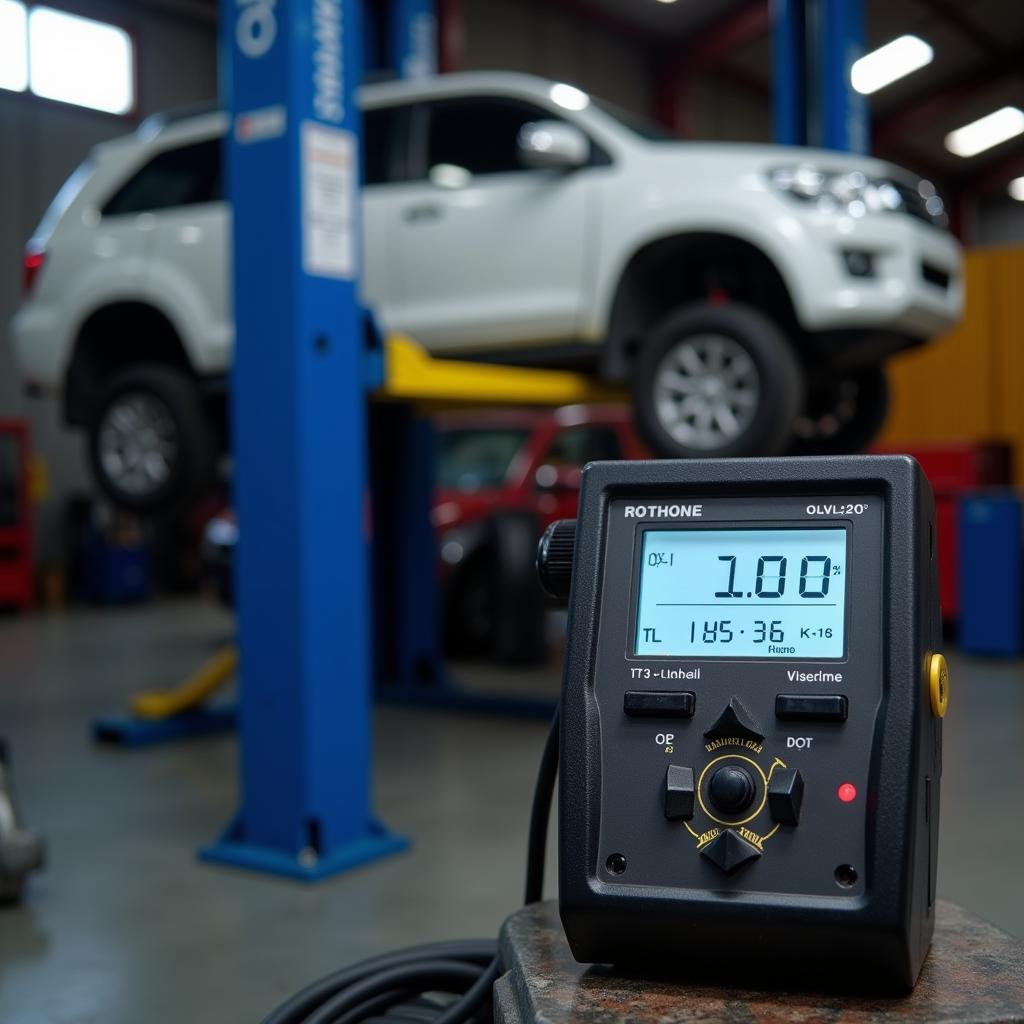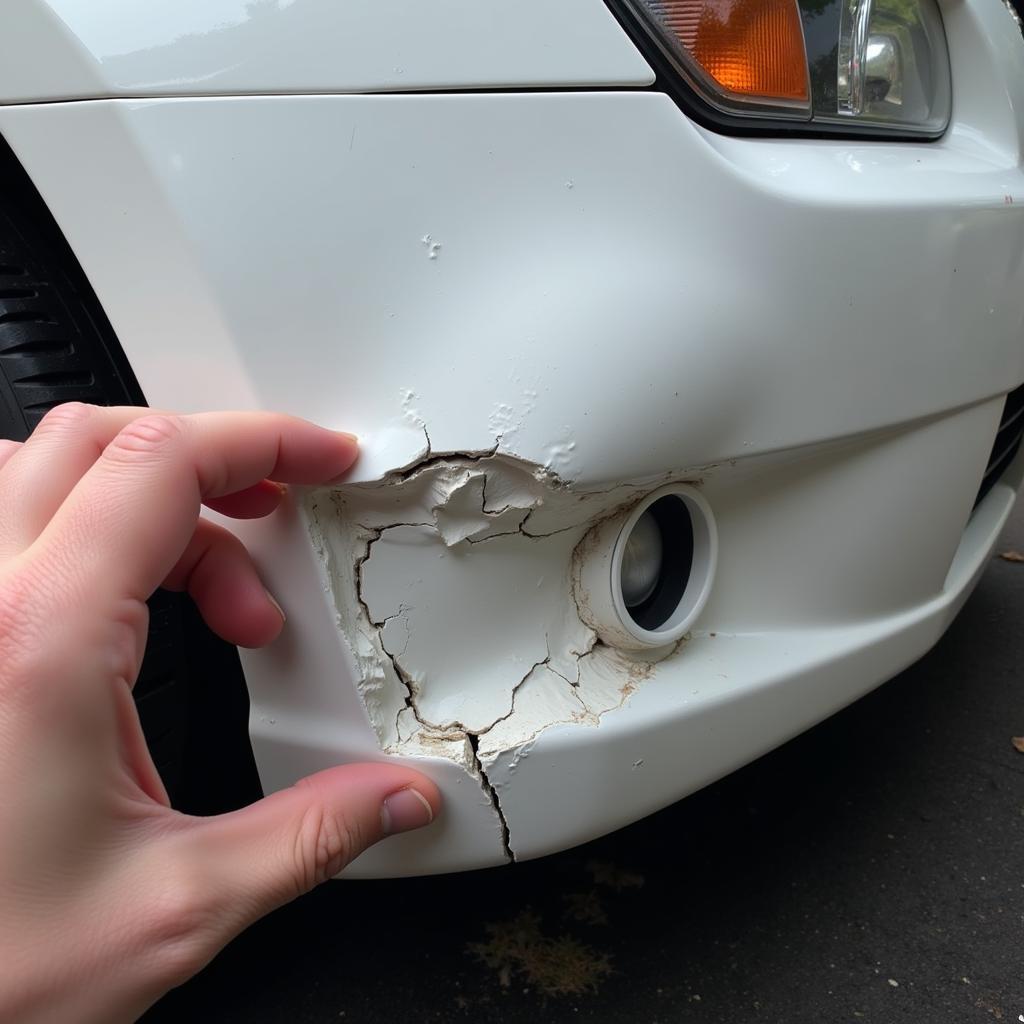Experiencing a sweltering summer drive because your car AC is blowing hot air? The culprit might be a faulty AC compressor clutch. This comprehensive guide will walk you through the common symptoms, causes, and step-by-step troubleshooting tips to help you fix your car AC compressor clutch.
Understanding the AC Compressor Clutch
Before diving into the nitty-gritty of repairs, it’s crucial to understand the role of the AC compressor clutch in your car’s air conditioning system.
Think of the compressor as the heart of your AC system, responsible for pumping refrigerant and maintaining the cooling cycle. The clutch, an electromagnetic pulley connected to the compressor, acts as a gatekeeper. When engaged, it allows the compressor to function, and when disengaged, it stops the compressor, saving energy and wear and tear.
Common Symptoms of a Failing AC Compressor Clutch
A malfunctioning AC compressor clutch can manifest itself in various ways. Here are some telltale signs that indicate a potential issue:
- Warm air blowing from the vents: This is often the first and most obvious symptom. If your AC is on but only blows warm air, your compressor clutch might not be engaging, preventing the cooling cycle.
- Clicking sounds from under the hood: When you turn on your AC, listen carefully for any clicking noises coming from the engine bay. These clicks could indicate a failing or struggling clutch trying to engage.
- AC compressor not engaging: If you visually inspect the compressor while someone else turns the AC on and off, and you don’t see the clutch engaging and disengaging, it indicates a problem.
- Burning smell: A burning smell emanating from your car, especially when the AC is running, could signal a slipping or overheated clutch.
Common Causes of AC Compressor Clutch Failure
Several factors can contribute to the failure of your car AC compressor clutch. Identifying the root cause is vital for effective repair:
- Electrical issues: A faulty fuse, relay, wiring harness, or low refrigerant charge can disrupt the electrical signal to the clutch, preventing engagement.
- Worn-out clutch components: Over time, the clutch components like the pulley, bearing, or coil can wear out, leading to malfunction.
- Air gap issues: The air gap between the clutch plate and pulley is crucial for proper engagement. An incorrect gap can prevent the clutch from engaging or lead to premature wear.
- Refrigerant leak: A leak in the AC system can cause low refrigerant levels, which might prevent the compressor clutch from engaging as a safety measure.
Troubleshooting and Fixing Your Car AC Compressor Clutch
Now that you understand the common symptoms and causes, let’s dive into troubleshooting and fixing your car AC compressor clutch:
1. Check the Fuses and Relays
Before delving into complex repairs, start with the basics. Locate the AC compressor clutch fuse and relay in your car’s fuse box (refer to your owner’s manual) and check for any blown fuses or faulty relays. Replace them if necessary.
2. Inspect the Wiring and Connections
Thoroughly examine the wiring harness connected to the AC compressor clutch for any signs of damage, corrosion, or loose connections. Repair or replace any damaged wiring and secure all connections.
3. Test the Clutch Cycling Switch
The clutch cycling switch, often located on the receiver-drier or accumulator, monitors refrigerant pressure and signals the clutch to engage or disengage. Test the switch for continuity and replace it if faulty.
4. Check the Refrigerant Charge
Low refrigerant levels can prevent the compressor clutch from engaging. Have a qualified technician check the refrigerant charge using a manifold gauge set and recharge the system if needed.
5. Inspect the AC Compressor Clutch
If the previous steps haven’t yielded any results, it’s time to inspect the AC compressor clutch itself:
- Visually inspect the clutch: Look for any visible signs of damage, wear, or debris on the clutch plate, pulley, and belt. Pay attention to cracks, scoring, or excessive wear.
- Check the air gap: Using a feeler gauge, measure the air gap between the clutch plate and pulley. Refer to your vehicle’s specifications for the correct gap and adjust accordingly.
6. Replace the AC Compressor Clutch
If you’ve identified damage to the clutch components or if adjusting the air gap doesn’t resolve the issue, you’ll likely need to replace the entire AC compressor clutch.
Expert Insight:
“Replacing the AC compressor clutch requires specialized tools and knowledge. If you’re not comfortable working with car AC systems, it’s best to leave this task to a qualified mechanic.” – John Smith, ASE Certified Master Technician
Conclusion
Troubleshooting and fixing your car AC compressor clutch can seem daunting, but by following these steps, you can identify and resolve the issue. Remember, maintaining your car’s AC system is crucial for comfortable driving, especially during hot summer months.
If you’re still experiencing problems with your car AC after attempting these fixes, don’t hesitate to contact the experts at Autotippro for assistance. Our team of certified technicians can diagnose and repair any car AC issue, ensuring you stay cool and comfortable on the road.
Contact AutoTipPro:
- Phone: +1 (641) 206-8880
- Office: 500 N St Mary’s St, San Antonio, TX 78205, United States
Frequently Asked Questions (FAQs)
1. How much does it cost to replace a car AC compressor clutch?
The cost of replacing a car AC compressor clutch can vary depending on the make and model of your vehicle and labor costs in your area. On average, you can expect to pay between $200 and $500 for parts and labor.
2. Can I drive my car with a bad AC compressor clutch?
While you can technically drive your car with a bad AC compressor clutch, it’s not recommended. Driving without a functioning AC system can lead to discomfort, especially in hot weather. Additionally, continuing to drive with a faulty clutch can damage other AC components, leading to more expensive repairs.
3. How long does an AC compressor clutch last?
The lifespan of an AC compressor clutch varies depending on driving conditions, climate, and maintenance. However, on average, you can expect a well-maintained clutch to last around 7-10 years or 100,000 miles.
4. How do I know if my AC compressor clutch is engaging?
To check if your AC compressor clutch is engaging, have someone turn the AC on while you visually inspect the compressor. You should see the clutch plate engage with the pulley and begin spinning. If you don’t see any movement, there might be an issue with the clutch.
5. Can I replace just the AC compressor clutch, or do I need to replace the entire compressor?
In most cases, you can replace only the AC compressor clutch without replacing the entire compressor. However, if the compressor itself is damaged or has experienced significant wear, a complete compressor replacement might be necessary.
6. How do I prevent future AC compressor clutch problems?
Regular maintenance is key to preventing future AC compressor clutch problems. Ensure your AC system is inspected and serviced annually by a qualified technician. Additionally, be mindful of any unusual noises or changes in your AC performance and address them promptly.
7. What are some common signs of a failing AC compressor?
Apart from clutch issues, a failing AC compressor might exhibit symptoms like loud noises from the compressor, reduced cooling performance, leaking refrigerant, or complete system failure. If you suspect a compressor issue, consult a qualified technician for diagnosis and repair.






Leave a Reply